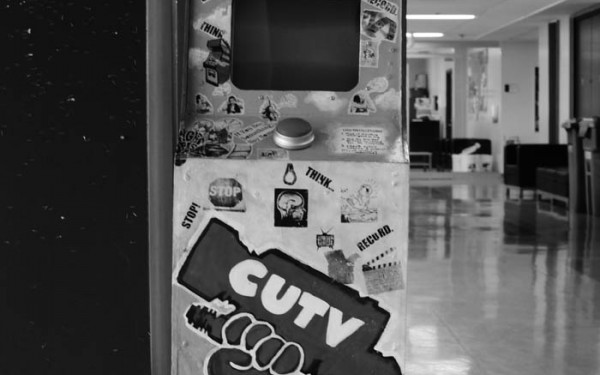Huff Po: the McDonalds of News Media
AOL Expands Editorial Section With The Huffington Post Merger
One of news media’s glimmering beacons of hope just went corporate, officially.
Ariana Huffington, President and Editor-in-Chief of The Huffington Post, sold her brainchild—which she nurtured to success with a $1 million investment—to America Online on Feb. 7. The Huffington Post is an online-exclusive news media publication.
Here’s the skinny: Huffington and AOL President Tim Armstrong started talking merger just a month before the $315 million deal went down—the biggest since AOL bought out Time Warner for $164 billion in February 2010.
This deal gives $300 million directly to Huffington, $15 million in stocks and also makes her editor-in-chief and president of AOL’s entire editorial content category. This is AOL’s proverbial stone and slingshot they plan to use to battle the Internet goliath known as Google.
Right now, The Huffington Post’s small team of 200 draws in 25 million visitors monthly. It made $61 million last year, more than doubling the $30 million it banked the year before. Armstrong and Huffington believe that, with pooled resources, they can draw in 100 million people monthly.
The numbers all point to success, but is the sale of The Huffington Post more of a boost for Huffington’s wealth and notoriety than it is for the future of news media?
One part says that news media will always be a hot commodity and if a small group of people can draw in this sort of attention and revenue, journalists and editors will be ok. Getting your news from dailies may be near extinction, but the newsmaker’s job remains in demand.
But why is Huffington raking in the dough while the rest of the news industry is suffering? Newspapers all over the globe are dropping like flies; it’s no secret.
On a Charlie Rose debate last April, Huffington said that there shouldn’t be walls around a publication. She identified the new way people consume media and news as following a series of links, likening the process to going through an Internet maze in search of information.
Huffington said that if a publication could constructively utilize the way people consume media by linking to and from other websites, the exchange would make both funds and web traffic gravitate towards the publication. In The Huffington Post’s case, she was right.
But Huffington has been accused of using a technique called Search Engine Optimization in her content to gain more traffic to her website and articles.For example, when Hosni Mubarak stepped down, the breaking news headline on The Huffington Post read “Egypt is Free.” ‘Egypt’ and ‘free’ are both common search engine buzzwords.
But, so what? Transmitting information to the public is a journalist’s job. It seems like critics are thinking more about their bylines than their actual jobs. If using a SEO headline is going to get readers into it, then why not do it? It’s not the scourge of long-form journalism. Maybe if long-form journalists make their work more available to Internet users, people will actually read it.
News publications that are going under could learn a thing or two from Huffington. But as with all groundbreaking techniques, everyone’s going to catch onto this. Once using SEO becomes popular, it’s going to be even harder to differentiate products from competing products.
Also, when catering your news to grab a bunch of hits on your website, it becomes tough to prioritize actual newsmaking over marketing. In Huffington’s case, she’s definitely made marketing via the SEO techniques and selling the left-slanted Huffington Post to the politically apathetic AOL a priority—while stating that her politics won’t interfere with AOL’s news content.
Trying to make content reach 100 million people on a monthly basis takes a certain non-radical standardization, common in successful mainstream media—which is definitely AOL’s modus operandi. To reach that many people, it’ll take demographic analysis to choose the content fit for the website in lieu of pure, rogue reporting.
Forget real stories and locality—I’m expecting The AOL Huffington Post to provide me with the latest YouTube videos of chipmunks and regurgitations of other news pieces. Nothing too interesting, just a one-stop shop of all the popular issues and events.
Now Huffington just needs to keep her writers, many of whom are wondering if they will now get paid after years of freelancing. With $315 million in the bank, Ariana should probably spread some wealth around.
This article originally appeared in Volume 31, Issue 23, published February 15, 2011.






